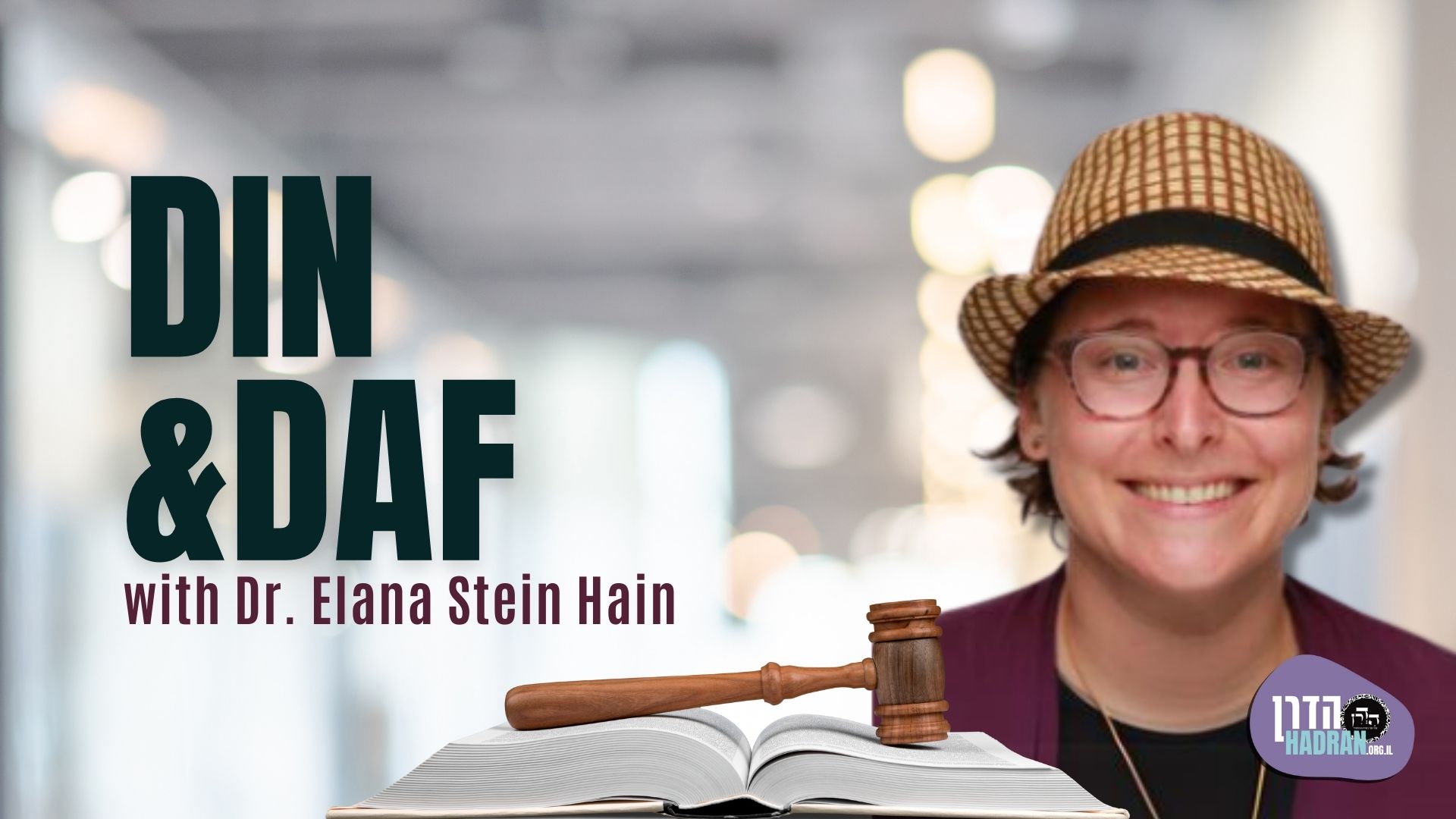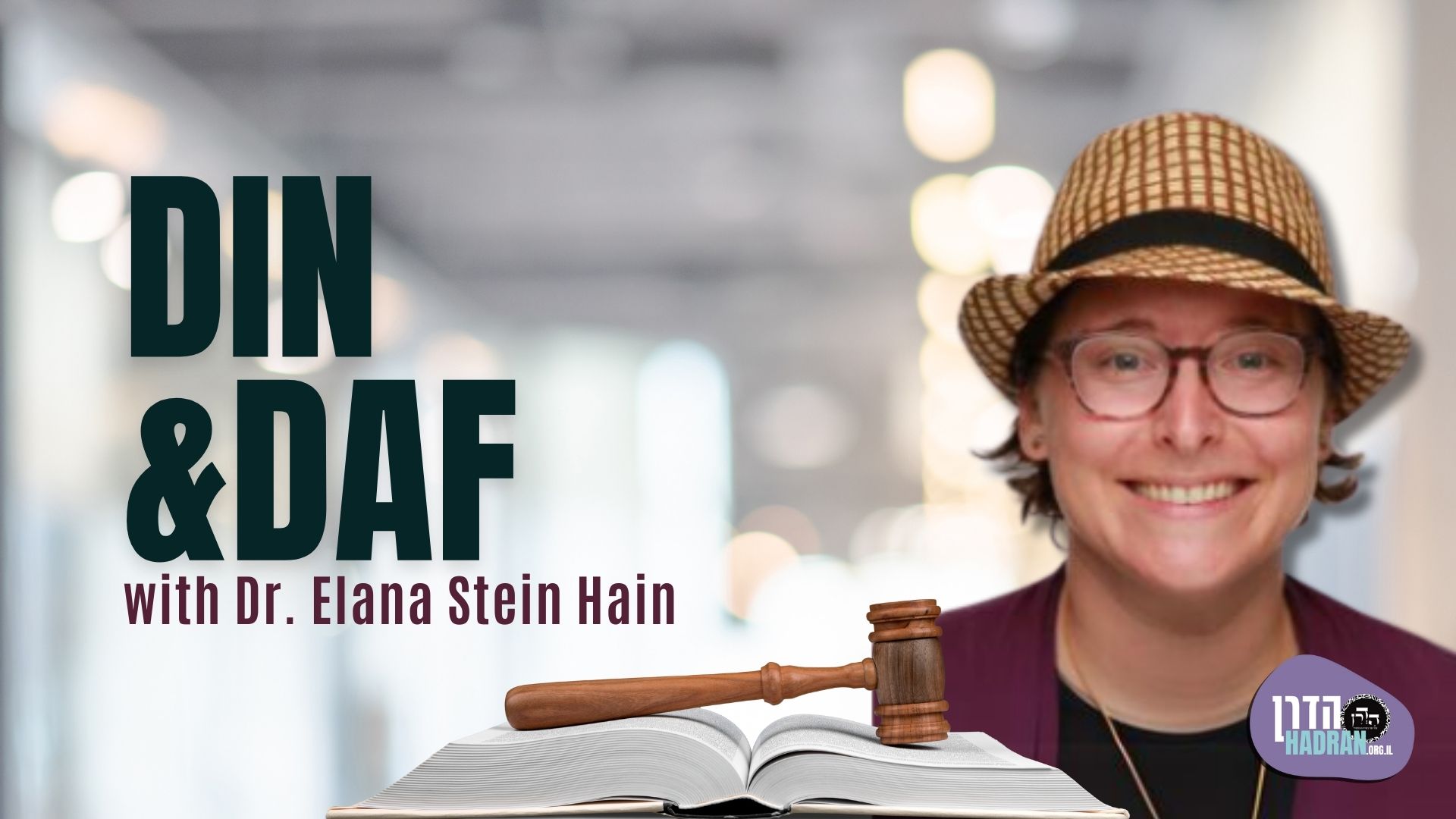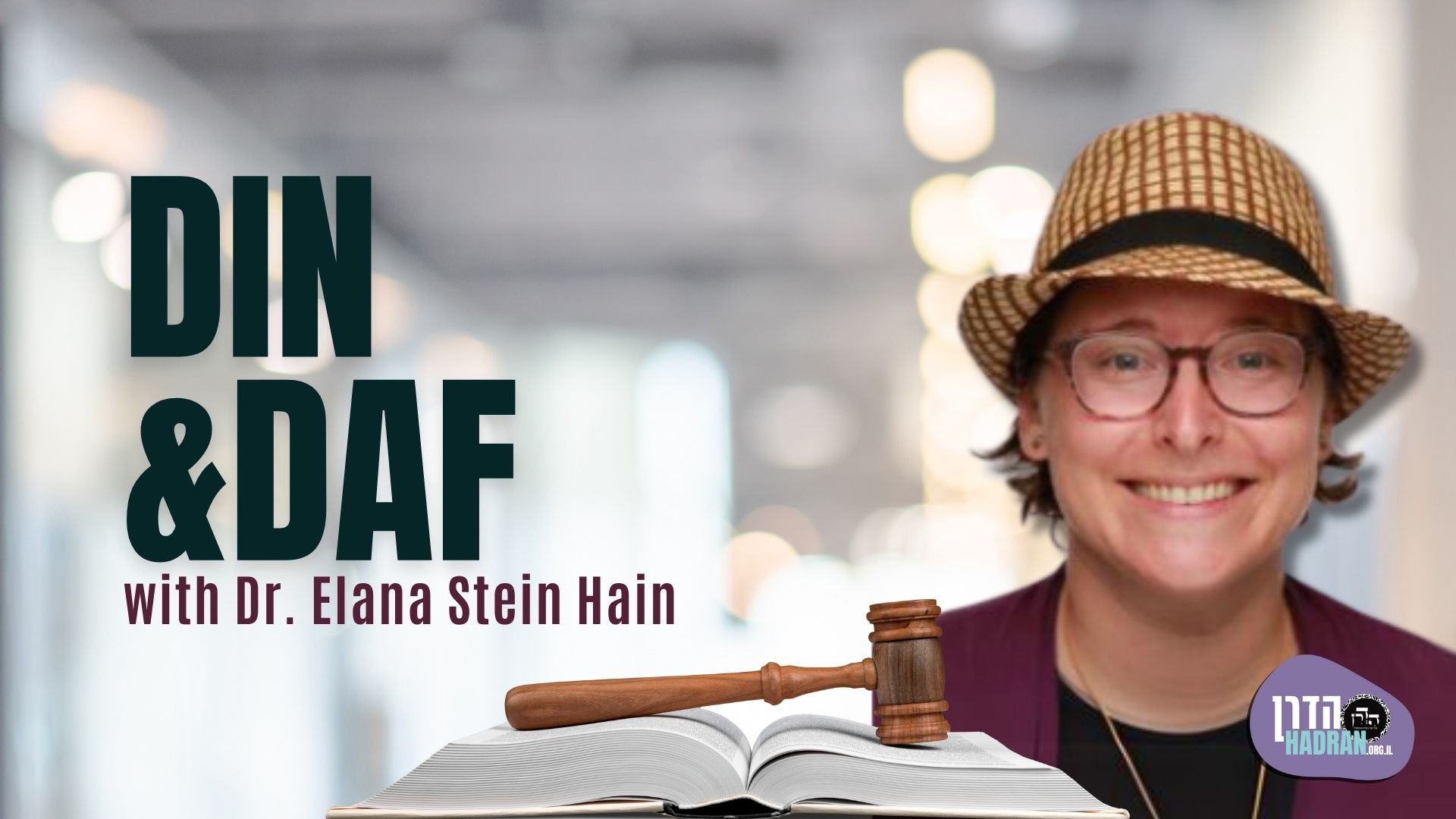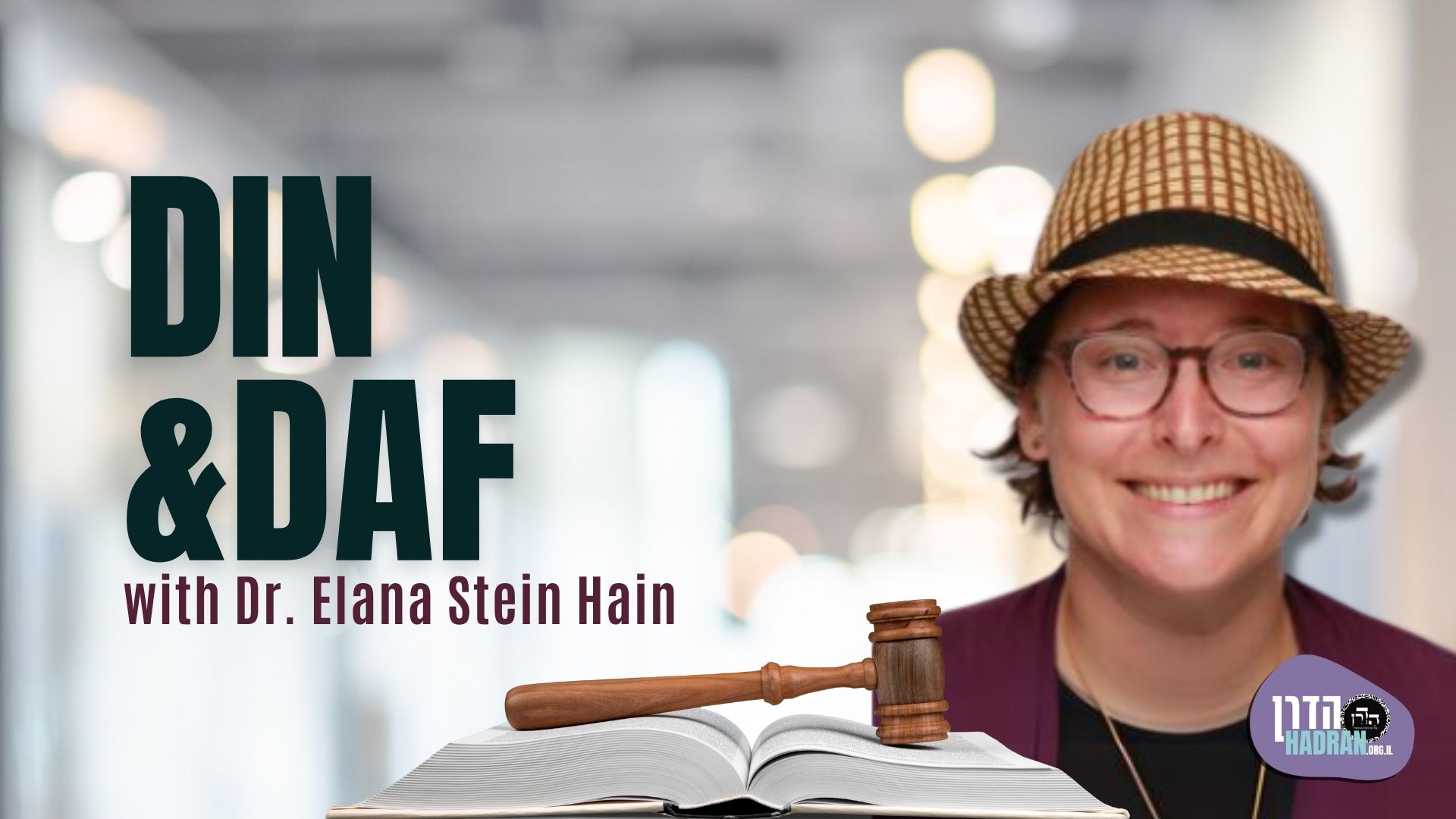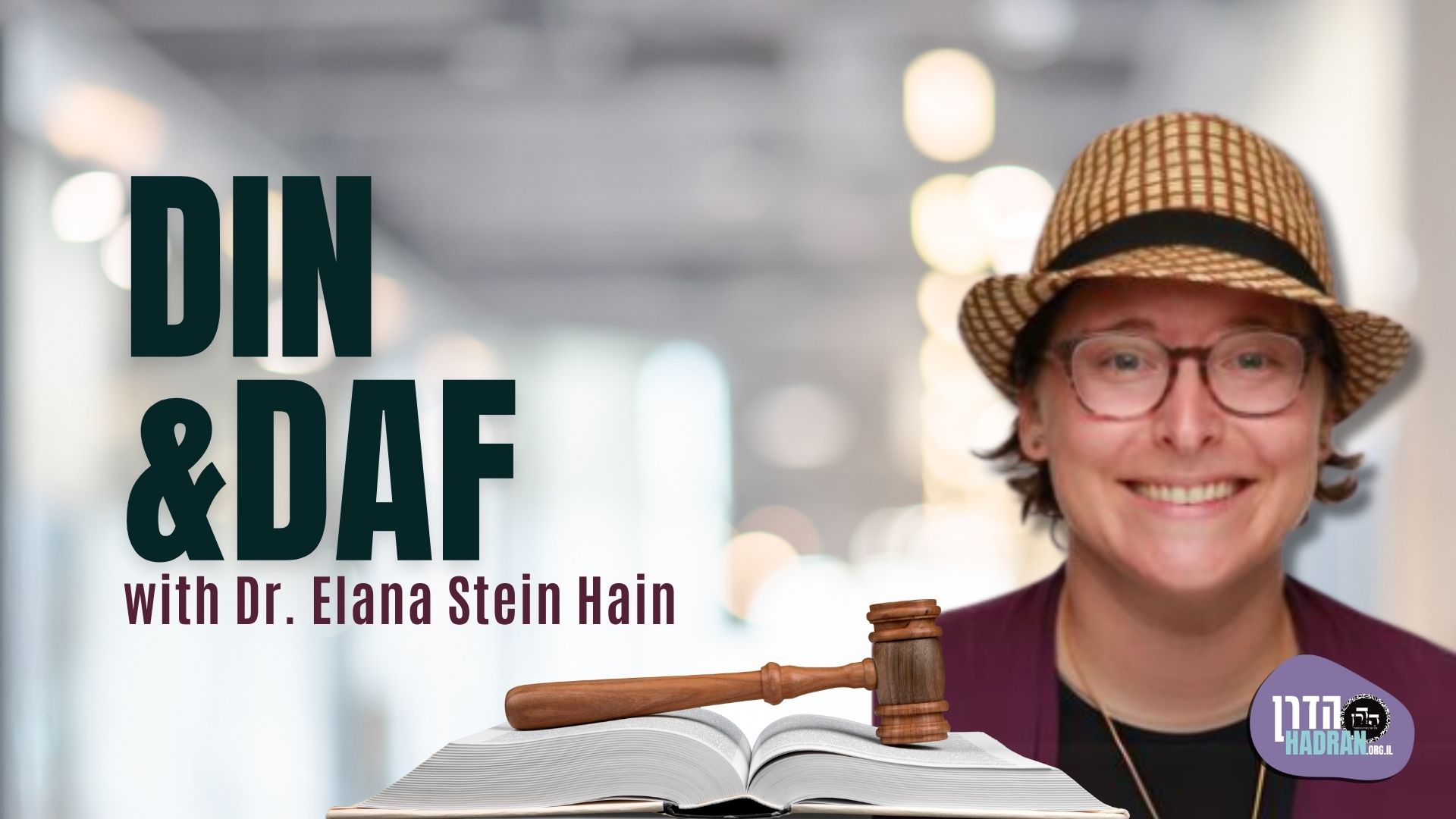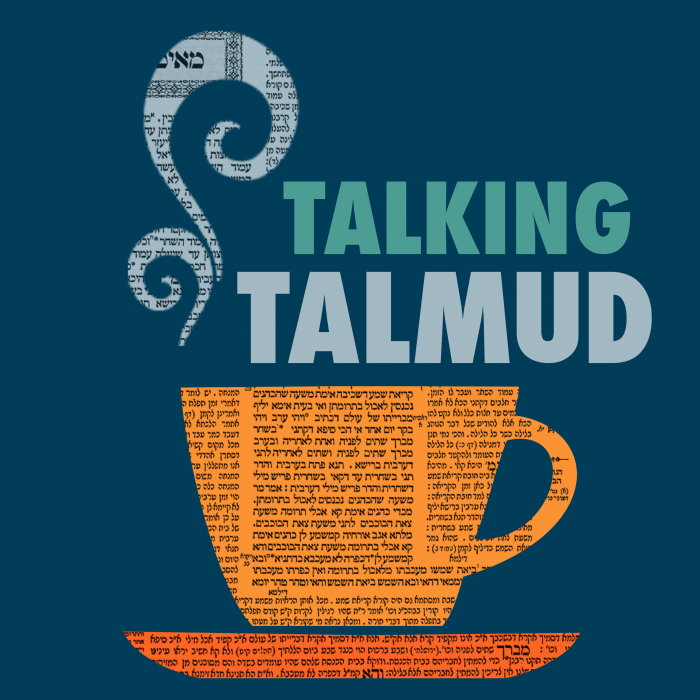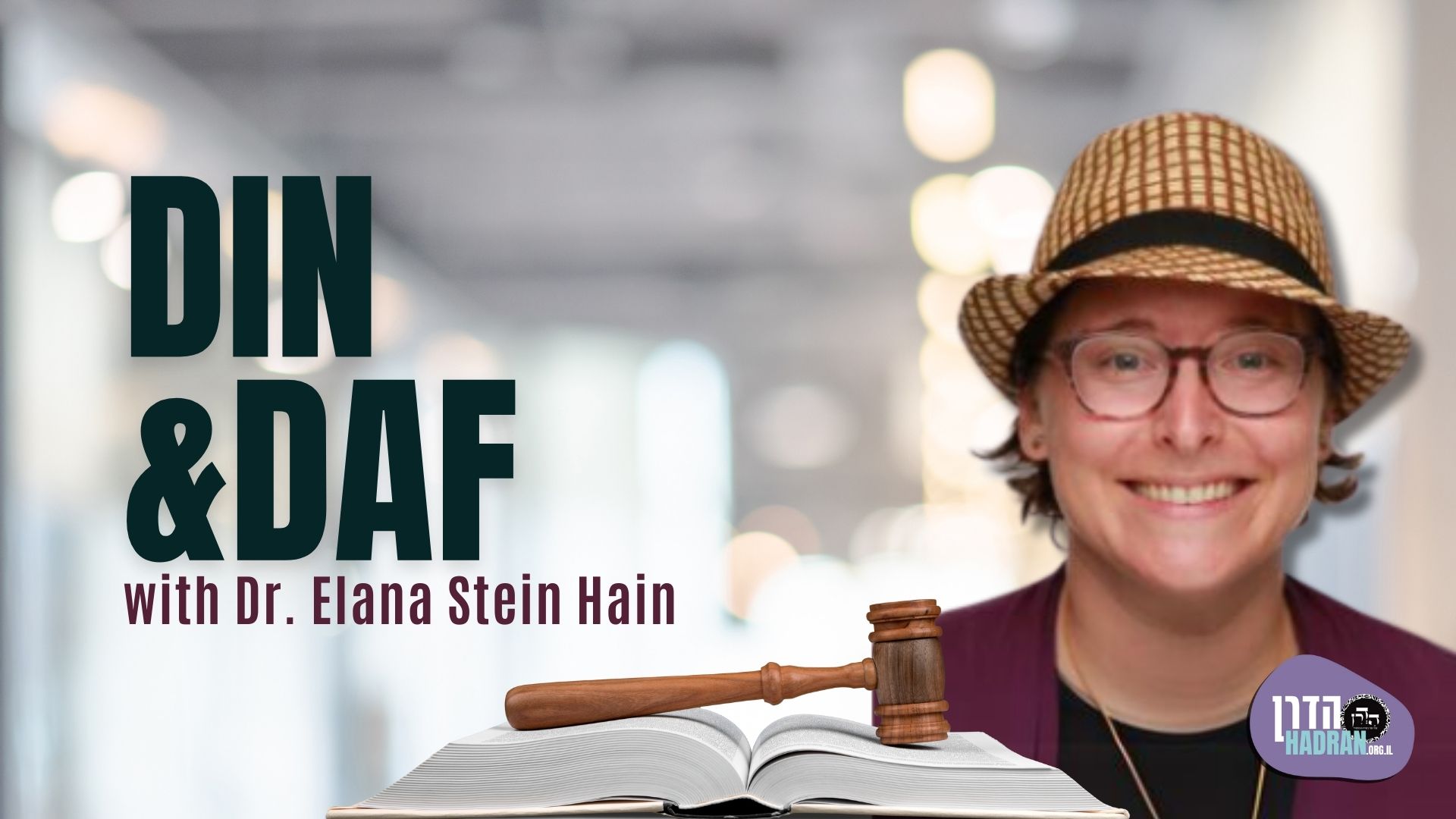Avodah Zarah 19
אַבְרָהָם אָבִינוּ, שֶׁלֹּא הָלַךְ בַּעֲצַת אַנְשֵׁי דּוֹר הַפְּלַגָּה, שֶׁרְשָׁעִים הָיוּ, שֶׁנֶּאֱמַר: ״הָבָה נִבְנֶה לָּנוּ עִיר״, ״וּבְדֶרֶךְ חַטָּאִים לֹא עָמָד״ — שֶׁלֹּא עָמַד בַּעֲמִידַת סְדוֹם, שֶׁחֲטָאִים הָיוּ, שֶׁנֶּאֱמַר: ״וְאַנְשֵׁי סְדֹם רָעִים וְחַטָּאִים לַה׳ מְאֹד״.
is referring to our forefather Abraham, who did not walk in the counsel of the members of the generation of the dispersion, who were wicked, as it is stated that they said to each other: “Come, let us build us a city, and a tower, with its top in heaven” (Genesis 11:4), a project with a wicked aim. “Nor stood in the way of sinners” (Psalms 1:1); this too is referring to Abraham, who did not join in the stand of the residents of Sodom, who were sinners, as it is stated: “Now the men of Sodom were wicked and sinners against the Lord exceedingly” (Genesis 13:13).
״וּבְמוֹשַׁב לֵצִים לֹא יָשָׁב״ — שֶׁלֹּא יָשַׁב בְּמוֹשַׁב אַנְשֵׁי פְּלִשְׁתִּים, מִפְּנֵי שֶׁלֵּצָנִים הָיוּ, שֶׁנֶּאֱמַר: ״וַיְהִי כְּטוֹב לִבָּם וַיֹּאמְרוּ קִרְאוּ לְשִׁמְשׁוֹן וִישַׂחֶק לָנוּ״.
“Nor sat in the seat of the scornful” (Psalms 1:1); this means that Abraham did not sit in the seat of the Philistines, because they were scorners who engaged in jest and buffoonery. As it is stated with regard to the Philistines in a later period: “And it came to pass, when their hearts were merry, that they said: Call for Samson, that he may make us sport” (Judges 16:25).
״אַשְׁרֵי אִישׁ יָרֵא אֶת ה׳״, אַשְׁרֵי אִישׁ וְלֹא אַשְׁרֵי אִשָּׁה? אָמַר רַב עַמְרָם אָמַר רַב: אַשְׁרֵי מִי שֶׁעוֹשֶׂה תְּשׁוּבָה כְּשֶׁהוּא ״אִישׁ״. רַבִּי יְהוֹשֻׁעַ בֶּן לֵוִי אָמַר: אַשְׁרֵי מִי שֶׁמִּתְגַּבֵּר עַל יִצְרוֹ ״כְּאִישׁ״.
The Gemara cites an interpretation of a similar verse: “Happy is the man that fears the Lord, that delights greatly in His mitzvot” (Psalms 112:1). The Gemara asks: Is that to say happy is the man, but not happy is the woman? Why is it necessary for the verse to emphasize that it is speaking of a man? Rav Amram says that Rav says: The verse applies to both men and women and is teaching: Happy is one who repents when he is still a man, i.e., before he becomes elderly and his strength dwindles. Rabbi Yehoshua ben Levi says: Happy is one who triumphs over his evil inclination like a man, i.e., with strength and vigor.
״בְּמִצְוֹתָיו חָפֵץ מְאֹד״, אָמַר רַבִּי אֶלְעָזָר: ״בְּמִצְוֹתָיו״ וְלֹא בִּשְׂכַר מִצְוֹתָיו, וְהַיְינוּ דִּתְנַן: הוּא הָיָה אוֹמֵר: אַל תִּהְיוּ כַּעֲבָדִים הַמְשַׁמְּשִׁין אֶת הָרַב עַל מְנָת לְקַבֵּל פְּרָס, אֶלָּא הֱיוּ כַּעֲבָדִים הַמְשַׁמְּשִׁין אֶת הָרַב שֶׁלֹּא עַל מְנָת לְקַבֵּל פְּרָס.
The verse continues: “He delights greatly in His mitzvot.” Rabbi Elazar says: The person delights in His mitzvot themselves and not in the reward for performing His mitzvot. And this is the same as we learned in a mishna (Avot 1:3): Antigonus of Sokho would say: Do not be like the servants who serve the master on the condition of receiving a reward; rather, be like the servants who serve the master not on the condition that they receive a reward.
״כִּי אִם בְּתוֹרַת ה׳ חֶפְצוֹ״, אָמַר רַבִּי: אֵין אָדָם לוֹמֵד תּוֹרָה אֶלָּא מִמָּקוֹם שֶׁלִּבּוֹ חָפֵץ, שֶׁנֶּאֱמַר: ״כִּי אִם בְּתוֹרַת ה׳ חֶפְצוֹ״.
§ The Gemara returns to its interpretation of the verse that was discussed previously: “But his delight is in the Torah of the Lord” (Psalms 1:2). Rabbi Yehuda HaNasi says: A person can learn Torah only from a place in the Torah that his heart desires, as it is stated: But his delight is in the Torah of the Lord, i.e., his delight is in the part of the Torah that he wishes to study.
לֵוִי וְרַבִּי שִׁמְעוֹן בְּרַבִּי יָתְבִי קַמֵּיהּ דְּרַבִּי, וְקָא פָּסְקִי סִידְרָא. סְלֵיק סִפְרָא, לֵוִי אָמַר: לַיְיתוֹ [לַן] מִשְׁלֵי, רַבִּי שִׁמְעוֹן בְּרַבִּי אָמַר: לַיְיתוֹ [לַן] תִּילִּים. כַּפְיֵיהּ לְלֵוִי וְאַיְיתוֹ תִּילִּים, כִּי מְטוֹ הָכָא ״כִּי אִם בְּתוֹרַת ה׳ חֶפְצוֹ״, פָּרֵישׁ רַבִּי וַאֲמַר: אֵין אָדָם לוֹמֵד תּוֹרָה אֶלָּא מִמָּקוֹם שֶׁלִּבּוֹ חָפֵץ. אָמַר לֵוִי: רַבִּי, נָתַתָּ לָנוּ רְשׁוּת לַעֲמוֹד.
The Gemara relates: Levi and Rabbi Shimon, son of Rabbi Yehuda HaNasi, were sitting before Rabbi Yehuda HaNasi, and they were learning the Torah portion. When they finished the book that they were learning and were ready to begin a new subject, Levi said: Let them bring us the book of Proverbs; and Rabbi Shimon, son of Rabbi Yehuda HaNasi, said: Let them bring us the book of Psalms. He compelled Levi to acquiesce, and they brought a book of Psalms. When they arrived here, at the verse: “But his delight is in the Torah of the Lord,” Rabbi Yehuda HaNasi explained the verse and said: A person can learn Torah only from a place in the Torah that his heart desires. Levi said: My teacher, you have given us, i.e., me, permission to rise and leave, as I wish to study Proverbs, not Psalms.
אָמַר רַבִּי אַבְדִּימִי בַּר חָמָא: כׇּל הָעוֹסֵק בַּתּוֹרָה, הַקָּדוֹשׁ בָּרוּךְ הוּא עוֹשֶׂה לוֹ חֲפָצָיו, שֶׁנֶּאֱמַר: ״כִּי אִם בְּתוֹרַת ה׳ חֶפְצוֹ״. אָמַר רָבָא: לְעוֹלָם יִלְמוֹד אָדָם תּוֹרָה בְּמָקוֹם שֶׁלִּבּוֹ חָפֵץ, שֶׁנֶּאֱמַר: ״כִּי אִם בְּתוֹרַת ה׳ חֶפְצוֹ״.
The Gemara cites other interpretations of this verse. Rabbi Avdimi bar Ḥama says: With regard to anyone who engages in the study of Torah, the Holy One, Blessed be He, fulfills his desires, as it is stated: “But in the Torah of the Lord is his delight,” i.e., if one engages in the study of the Torah of the Lord, he will have his desires met by the Lord. Rava says, in accordance with the statement of Rabbi Yehuda HaNasi: A person should always learn Torah from a place in the Torah that his heart desires, as it is stated: “But his delight is in the Torah of the Lord.”
וְאָמַר רָבָא: בַּתְּחִילָּה נִקְרֵאת עַל שְׁמוֹ שֶׁל הַקָּדוֹשׁ בָּרוּךְ הוּא, וּלְבַסּוֹף נִקְרֵאת עַל שְׁמוֹ, שֶׁנֶּאֱמַר: ״בְּתוֹרַת ה׳ חֶפְצוֹ״, ״וּבְתוֹרָתוֹ יֶהְגֶּה יוֹמָם וָלָיְלָה״.
And Rava also says, with regard to this verse: Initially the Torah is called by the name of the Holy One, Blessed be He, but ultimately it is called by the name of the one who studies it. As it is first stated: “His delight is in the Torah of the Lord,” and in the continuation of the verse it states: “And in his Torah he meditates day and night.” This teaches that through study one acquires ownership, as it were, of the Torah.
וְאָמַר רָבָא: לְעוֹלָם יִלְמַד אָדָם תּוֹרָה, וְאַחַר כָּךְ יֶהֱגֶה, שֶׁנֶּאֱמַר: ״בְּתוֹרַת ה׳״, וַהֲדַר ״וּבְתוֹרָתוֹ יֶהְגֶּה״.
And Rava says in reference to this verse: A person must always study Torah and gain a broad knowledge of it, and only then may he analyze and delve into it. As it is stated: “His delight is in the Torah of the Lord,” meaning that he studies the Torah on a basic level, and only afterward does the verse state: “And in his Torah he meditates,” i.e., he analyzes it.
וְאָמַר רָבָא: לְעוֹלָם לִיגְרֵיס אִינִישׁ, וְאַף עַל גַּב דִּמְשַׁכַּח, וְאַף עַל גַּב דְּלָא יָדַע מַאי קָאָמַר, שֶׁנֶּאֱמַר: ״גָּרְסָה נַפְשִׁי לְתַאֲבָה״, ״גָּרְסָה״ כְּתִיב וְלָא כְּתִיב ״טָחֲנָה״.
And Rava says with regard to Torah study: A person should always study [ligeris] and review even though he may afterward forget, and even though he does not understand what it is saying. As it is stated with regard to the study of Torah: “My soul breaks [garesa] for the longing that it has for Your ordinances at all times” (Psalms 119:20). It is written: “Breaks,” and it is not written: Grinds, demonstrating that the soul is satisfied with breaking apart material, on a basic level, even if it does not have the opportunity to grind and analyze it in greater depth.
רָבָא רָמֵי: כְּתִיב ״עַל גַּפֵּי״, וּכְתִיב ״עַל כִּסֵּא״! בַּתְּחִלָּה ״עַל גַּפֵּי״, וּלְבַסּוֹף ״עַל כִּסֵּא״.
Rava raises a contradiction between two verses: It is written that the Torah calls to people: “Upon the highest places of the city” (Proverbs 9:3), and it is written far more specifically: “On a seat in the high places of the city” (Proverbs 9:14). He explains: Initially, one who studies Torah does not have a secure place to sit, and therefore he is located merely upon the highest places, but ultimately, as he advances in his learning, he is placed on a seat of honor.
כְּתִיב ״בְּרֹאשׁ מְרֹמִים״, וּכְתִיב ״עֲלֵי דָרֶךְ״. בַּתְּחִלָּה ״בְּרֹאשׁ מְרוֹמִים״, וּלְבַסּוֹף ״עֲלֵי דָרֶךְ״.
The Gemara mentions a similar contradiction. It is written with regard to the Torah: “In the top of high places” (Proverbs 8:2), and it is written in the continuation of the verse that the Torah is “by the path.” This contradiction is resolved as follows: Initially, a person studies Torah in a private location, in the top of high places, but ultimately he will spread his knowledge, by the path, in the public realm.
עוּלָּא רָמֵי: כְּתִיב ״שְׁתֵה מַיִם מִבּוֹרֶךָ״, וּכְתִיב ״וְנוֹזְלִים מִתּוֹךְ בְּאֵרֶךָ״ — בַּתְּחִלָּה ״שְׁתֵה מִבּוֹרֶךָ״, וּלְבַסּוֹף ״וְנוֹזְלִים מִתּוֹךְ בְּאֵרֶךָ״.
Ulla raises a contradiction with regard to the following verse. It is written: “Drink waters out of your own cistern” (Proverbs 5:15), and it is written in the continuation of the verse: “And running waters out of your own well.” He explains: Initially one should “drink waters out of your own cistern,” i.e., like the cistern that draws water into one location, learning all existing knowledge; and ultimately one can produce “running waters out of your own well,” i.e., original thought and innovative insights in Torah.
אָמַר רָבָא אָמַר רַב סְחוֹרָה אָמַר רַב הוּנָא: מַאי דִּכְתִיב ״הוֹן מֵהֶבֶל יִמְעָט וְקֹבֵץ עַל יָד יַרְבֶּה״? אִם עוֹשֶׂה אָדָם תּוֹרָתוֹ חֲבִילוֹת חֲבִילוֹת — מִתְמַעֵט, וְאִם קוֹבֵץ עַל יָד — יַרְבֶּה.
The Gemara cites other statements relating to Torah study. Rava says that Rav Seḥora says that Rav Huna says: What is the meaning of that which is written: “Wealth gotten through vanity [mehevel] shall be diminished; but he that gathers little by little shall increase” (Proverbs 13:11)? If a person turns his Torah into many bundles [ḥavilot], by studying large amounts in a short period of time without reviewing, his Torah will diminish. But if he gathers his knowledge little by little, by studying slowly and reviewing, his knowledge shall increase.
אָמַר רָבָא: יָדְעִי רַבָּנַן לְהָא מִילְּתָא וְעָבְרִי עֲלַהּ. אָמַר רַב נַחְמָן בַּר יִצְחָק: אֲנָא עֲבִידְתַּהּ, וְאִקַּיַּים בִּידִי.
Rava said: The Sages know this, but nevertheless they transgress it, i.e., they fail to heed this advice. Rav Naḥman bar Yitzḥak says: I did this, as I studied little by little and regularly reviewed what I had learned, and my learning has in fact endured.
אָמַר רַב שֵׁיזְבִי מִשְּׁמֵיהּ דְּרַבִּי אֶלְעָזָר בֶּן עֲזַרְיָה: מַאי דִּכְתִיב ״לֹא יַחֲרֹךְ רְמִיָּה צֵידוֹ״? לֹא יִחְיֶה וְלֹא יַאֲרִיךְ יָמִים צַיָּיד הָרַמַּאי.
Rav Sheizvi said in the name of Rabbi Elazar ben Azarya: What is the meaning of that which is written: “The slothful man [remiyya] will not roast [yaḥarokh] his prey” (Proverbs 12:27)? The deceitful [harammai] hunter, i.e., one who tricks people into believing that he has acquired vast stores of knowledge by studying new material without reviewing that which he has already learned, will not live [yiḥye] a long [ya’arikh] life. According to this interpretation, yaḥarokh is a combination of the words yiḥye and ya’arikh.
וְרַב שֵׁשֶׁת אָמַר: ״צַיָּיד הָרַמַּאי יַחֲרוֹךְ״. כִּי אֲתָא רַב דִּימִי אָמַר: מָשָׁל לְאָדָם שֶׁצָּד צִפֳּרִין, אִם מְשַׁבֵּר כְּנָפֶיהָ שֶׁל רִאשׁוֹנָה — כּוּלָּם מִתְקַיְּימוֹת בְּיָדוֹ, וְאִם לָאו — אֵין מִתְקַיְּימוֹת בְּיָדוֹ.
And Rav Sheshet says that the verse means the opposite: The cunning [harammai] hunter will roast his prey to prevent it from escaping, i.e., he reads the verse as a rhetorical question: Will not the hunter roast? When Rav Dimi came from Eretz Yisrael to Babylonia, he said: This is comparable to a person who is hunting birds; if he breaks the wings of the first bird so that it will be unable to fly off, and he proceeds in this manner, all of his prey will remain in his possession; but if not, they will not remain in his possession, as each bird will fly off when the next is captured. In a similar fashion, a clever student reviews that which he learns, to ensure that he retains his knowledge.
״וְהָיָה כְּעֵץ שָׁתוּל עַל פַּלְגֵי מָיִם״, אָמְרִי דְּבֵי רַבִּי יַנַּאי: ״כְּעֵץ שָׁתוּל״ וְלֹא ״כְּעֵץ נָטוּעַ״, כׇּל הַלּוֹמֵד תּוֹרָה מֵרַב אֶחָד אֵינוֹ רוֹאֶה סִימַן בְּרָכָה לְעוֹלָם.
§ The Gemara returns to its interpretation of the first verses of Psalms. “And he shall be like a tree planted [shatul] by streams of water” (Psalms 1:3). The students of the school of Rabbi Yannai say: The verse states that a Torah scholar is comparable to a tree that has been uprooted from its original location and replanted [shatul] somewhere else. It does not say that he is comparable to a tree that is planted [natu’a] and remains in one place. This is teaching that anyone who learns Torah from one teacher alone never sees a sign of blessing, as it is necessary to acquire knowledge from many teachers.
אֲמַר לְהוּ רַב חִסְדָּא לְרַבָּנַן: בָּעֵינָא דְּאֵימָא לְכוּ מִלְּתָא, וּמִסְתְּפֵינָא דְּשָׁבְקִיתוּ לִי וְאָזְלִיתוּ. כׇּל הַלּוֹמֵד תּוֹרָה מֵרַב אֶחָד — אֵינוֹ רוֹאֶה סִימַן בְּרָכָה לְעוֹלָם. שַׁבְקוּהּ וַאֲזוּל קַמֵּיהּ דְּרָבָא. אֲמַר לְהוּ: הָנֵי מִילֵּי סְבָרָא, אֲבָל גְּמָרָא מֵרַב אֶחָד עֲדִיף, כִּי הֵיכִי
Rav Ḥisda said to the Sages who were studying with him: I wish to say something to you, but I am afraid that then you will leave me and go. What did he wish to tell them? He wanted to say that anyone who learns Torah from one teacher alone never sees a sign of blessing. When the students heard this, they did in fact leave him and went to learn from Rava. Rav Ḥisda said to them: That matter applies only with regard to reasoning, i.e., in order to come up with sophisticated reasoning it is necessary to hear many different opinions. But with regard to the oral tradition itself, it is preferable to learn from one teacher so that
דְּלָא לִיפַּלּוּג לִישָּׁנֵי. ״עַל פַּלְגֵי מַיִם״. אָמַר רַבִּי תַּנְחוּם בַּר חֲנִילַאי: לְעוֹלָם יְשַׁלֵּשׁ אָדָם שְׁנוֹתָיו — שְׁלִישׁ בַּמִּקְרָא, שְׁלִישׁ בַּמִּשְׁנָה, שְׁלִישׁ בַּתַּלְמוּד.
he will not become confused by the different versions of the same statements he hears from each teacher, as he will have no clear authoritative version from one source. The Gemara continues discussing the verse cited above: “By streams [palgei] of water” (Psalms 1:3). Rabbi Tanḥum bar Ḥanilai says: Since the root peh, lamed, gimmel can also refer to dividing, the verse is interpreted as follows: A person should always divide his years into thirds, as follows: One third for Bible, one third for Mishna and one third for Talmud.
מִי יָדַע אִינִישׁ כַּמָּה חָיֵי? כִּי קָאָמְרִינַן — בְּיוֹמֵי.
The Gemara asks: How can one divide his life this way? Does a person know the length of his life, that he can calculate how much a third will be? The Gemara answers: When we said that a one should divide his time into thirds, the intention was with regard to his days, i.e., he should devote one third of each day to Bible, Mishna, and Talmud, respectively.
״אֲשֶׁר פִּרְיוֹ יִתֵּן בְּעִתּוֹ״, אָמַר רָבָא: אִם ״פִּרְיוֹ יִתֵּן בְּעִתּוֹ״ — ״וְעָלֵהוּ לֹא יִבּוֹל״, וְאִם לָאו — עַל הַלּוֹמֵד וְעַל הַמְלַמֵּד עֲלֵיהֶם הַכָּתוּב אוֹמֵר: ״לֹא כֵן הָרְשָׁעִים כִּי אִם וְגוֹ׳״.
The Gemara discusses the continuation of the verse cited above: “That brings forth its fruit in its season and whose leaf does not wither” (Psalms 1:3). Rava says: If one brings forth fruit in its season, i.e., if he acts in accordance with the precepts of Torah that he learns, then his leaf will not wither, as the Torah will sustain him. But if one does not learn with the intention that his studies should lead to action, then with regard to both the one who is taught and with regard to the one who teaches, the verse states about them: “Not so the wicked; but they are like the chaff that the wind drives away” (Psalms 1:4).
אָמַר רַבִּי אַבָּא אָמַר רַב הוּנָא אָמַר רַב, מַאי דִּכְתִיב: ״כִּי רַבִּים חֲלָלִים הִפִּילָה״ — זֶה תַּלְמִיד שֶׁלֹּא הִגִּיעַ לְהוֹרָאָה וּמוֹרֶה, ״וַעֲצֻמִים כׇּל הֲרוּגֶיהָ״ — זֶה תַּלְמִיד שֶׁהִגִּיעַ לְהוֹרָאָה וְאֵינוֹ מוֹרֶה.
Rabbi Abba says that Rav Huna says that Rav says: What is the meaning of that which is written: “For she has cast down [hippila] many wounded and a mighty host are all her slain” (Proverbs 7:26)? This is referring to a student who has not yet reached the level where he can render legal decisions, but nevertheless he already issues decisions. He is like a fetus that emerged from the womb before its time, as the word hippila also means to miscarry. “And a mighty host are all her slain”; this is referring to a student who has reached the level where he can render legal decisions, referred to here as “a mighty host,” but he does not issue decisions, and by refraining from teaching what he knows prevents the masses from learning Torah properly.
וְעַד כַּמָּה? עַד אַרְבְּעִין שְׁנִין. וְהָא רָבָא אוֹרִי! הָתָם בְּשָׁוִין.
And until when is a scholar considered too immature to render legal decisions? He is considered immature until the age of forty years. The Gemara asks: But didn’t Rava issue legal decisions before that age? The Gemara answers: There it is permitted, as in Rava’s case they are equal, i.e., if one has achieved a level of knowledge that is equivalent to that of the foremost scholar in his city, he is permitted to render decisions even before reaching the age of forty.
״וְעָלֵהוּ לֹא יִבּוֹל״, אָמַר רַב אַחָא בַּר אַדָּא אָמַר רַב, וְאָמְרִי לַהּ אָמַר רַב אַחָא בַּר אַבָּא אָמַר רַב הַמְנוּנָא אָמַר רַב: שֶׁאֲפִילּוּ שִׂיחַת חוּלִּין שֶׁל תַּלְמִידֵי חֲכָמִים צְרִיכָה תַּלְמוּד, שֶׁנֶּאֱמַר: ״וְעָלֵהוּ לֹא יִבּוֹל״.
The Gemara cites another discussion with regard to the aforementioned verse: “And whose leaf does not wither” (Psalms 1:3). Rav Aḥa bar Adda says that Rav says, and some say that it was Rav Aḥa bar Abba who says that Rav Hamnuna says that Rav says: One should know that even the ordinary conversation of Torah scholars require analysis, as it is stated: “And whose leaf does not wither.” This teaches that even the ordinary conversation of a Torah scholar, which is comparable to the leaves of a tree, has great significance like the actual fruit of the tree.
״וְכֹל אֲשֶׁר יַעֲשֶׂה יַצְלִיחַ״, אָמַר רַבִּי יְהוֹשֻׁעַ בֶּן לֵוִי: דָּבָר זֶה כָּתוּב בַּתּוֹרָה, וְשָׁנוּי בַּנְּבִיאִים, וּמְשׁוּלָּשׁ בַּכְּתוּבִים — כׇּל הָעוֹסֵק בַּתּוֹרָה נְכָסָיו מַצְלִיחִין לוֹ. כָּתוּב בַּתּוֹרָה — דִּכְתִיב: ״וּשְׁמַרְתֶּם אֶת דִּבְרֵי הַבְּרִית הַזֹּאת וַעֲשִׂיתֶם אֹתָם לְמַעַן תַּשְׂכִּילוּ אֵת כׇּל אֲשֶׁר תַּעֲשׂוּן״.
The verse continues: “And in whatsoever he does he shall prosper.” Rabbi Yehoshua ben Levi says: This matter is written in the Torah, and repeated in the Prophets, and stated a third time in the Writings: Concerning anyone who engages in Torah study, his property dealings will be successful. It is written in the Torah, as it is written: “Observe therefore the words of this covenant, and do them, that you may make all that you do to prosper” (Deuteronomy 29:8).
שָׁנוּי בַּנְּבִיאִים — דִּכְתִיב: ״לֹא יָמוּשׁ סֵפֶר הַתּוֹרָה [הַזֶּה] מִפִּיךָ וְהָגִיתָ בּוֹ יוֹמָם וָלַיְלָה לְמַעַן תִּשְׁמֹר לַעֲשׂוֹת כְּכׇל הַכָּתוּב בּוֹ כִּי אָז תַּצְלִיחַ אֶת דְּרָכֶיךָ וְאָז תַּשְׂכִּיל״. מְשׁוּלָּשׁ בַּכְּתוּבִים — דִּכְתִיב: ״כִּי אִם בְּתוֹרַת ה׳ חֶפְצוֹ וּבְתוֹרָתוֹ יֶהְגֶּה יוֹמָם וָלָיְלָה וְהָיָה כְּעֵץ שָׁתוּל עַל פַּלְגֵי מָיִם אֲשֶׁר פִּרְיוֹ יִתֵּן בְּעִתּוֹ וְעָלֵהוּ לֹא יִבּוֹל וְכֹל אֲשֶׁר יַעֲשֶׂה יַצְלִיחַ״.
It is repeated in the Prophets, as it is written: “This book of the Torah shall not depart out of your mouth, but you shall meditate on it day and night, that you may observe to do according to all that is written in it; for then you shall make your ways prosperous, and then you shall have good success” (Joshua 1:8). It is stated a third time in the Writings, as it is written: “But his delight is in the Torah of the Lord; and in His Torah he meditates day and night. And he shall be like a tree planted by streams of water, that brings forth its fruit in its season, and whose leaf does not wither; and in whatsoever he does he shall prosper” (Psalms 1:2–3).
מַכְרִיז רַבִּי אֲלֶכְּסַנְדְּרִי: מַאן בָּעֵי חַיֵּי? מַאן בָּעֵי חַיֵּי? (כנוף) [אִיכְּנוּף] וַאֲתוֹ כּוּלֵּי עָלְמָא לְגַבֵּיהּ, אָמְרִי לֵיהּ: הַב לַן חַיֵּי! אֲמַר לְהוּ: ״מִי הָאִישׁ הֶחָפֵץ חַיִּים וְגוֹ׳ נְצֹר לְשׁוֹנְךָ מֵרָע וְגוֹ׳״.
The Gemara relates that Rabbi Alexandri would proclaim in public, in the manner of a merchant selling wares: Who desires life? Who desires life? Everyone gathered around him to buy from him, saying to him: Give us life! He stated the following verse to them: “Who is the man that desires life, and loves days, that he may see good in them? Keep your tongue from evil, and your lips from speaking guile” (Psalms 34:13–14).
״סוּר מֵרָע וַעֲשֵׂה טוֹב וְגוֹ׳״, שֶׁמָּא יֹאמַר: נָצַרְתִּי לְשׁוֹנִי מֵרָע וּשְׂפָתַי מִדַּבֵּר מִרְמָה, אֵלֵךְ וְאֶתְגָּרֶה בְּשֵׁינָה? תַּלְמוּד לוֹמַר: ״סוּר מֵרָע וַעֲשֵׂה טוֹב״, ואין ״טוֹב״ אֶלָּא תּוֹרָה, שֶׁנֶּאֱמַר: ״כִּי לֶקַח טוֹב נָתַתִּי לָכֶם תּוֹרָתִי אַל תַּעֲזֹבוּ״.
The psalm continues: “Depart from evil, and do good; seek peace and pursue it” (Psalms 34:15). The Gemara explains: Lest one say: I have kept my tongue from evil and my lips from speaking guile, I will therefore go and indulge in sleep. To counter this possibility, the verse states: “Depart from evil, and do good,” i.e., it is not enough to avoid evil, but one must actively do good. And the word good means nothing other than Torah, as it is stated: “For I have given you a good portion; My Torah, do not abandon it” (Proverbs 4:2).
הִגִּיעַ לַכִּיפָּה מָקוֹם שֶׁמַּעֲמִידִין בָּהּ עֲבוֹדָה זָרָה. אָמַר רַבִּי אֶלְעָזָר אָמַר רַבִּי יוֹחָנָן: אִם בָּנָה — שְׂכָרוֹ מוּתָּר. פְּשִׁיטָא! מְשַׁמְּשֵׁי עֲבוֹדָה זָרָה הֵן, וּמְשַׁמְּשֵׁי עֲבוֹדָה זָרָה, בֵּין לְרַבִּי יִשְׁמָעֵאל בֵּין לְרַבִּי עֲקִיבָא, אֵינָן אֲסוּרִין עַד שִׁיעְבְּדוּ.
§ The mishna teaches: One may build with gentiles small platforms and bathhouses, but once he reaches the arched chamber in the bath where the gentiles put up objects of idol worship, it is prohibited for a Jew to continue building it. Rabbi Elazar says that Rabbi Yoḥanan says: If he did continue to build the arched chamber, his wages are permitted. The Gemara asks: Isn’t that obvious? After all, such arched chambers are only accessories of idol worship, and with regard to accessories of idol worship, both according to Rabbi Yishmael and according to Rabbi Akiva, who disagree with regard to deriving benefit from an actual object of idol worship (51b), deriving benefit from accessories of idol worship is not prohibited until they are worshipped.
אָמַר רַבִּי יִרְמְיָה: לֹא נִצְרְכָה אֶלָּא לַעֲבוֹדָה זָרָה עַצְמָהּ. הָנִיחָא לְמַאן דְּאָמַר: עֲבוֹדָה זָרָה שֶׁל יִשְׂרָאֵל אֲסוּרָה מִיָּד, וְשֶׁל גּוֹי עַד שֶׁתֵּעָבֵד — שַׁפִּיר, אֶלָּא לְמַאן דְּאָמַר: שֶׁל גּוֹי אֲסוּרָה מִיָּד, מַאי אִיכָּא לְמֵימַר?
Rabbi Yirmeya says: Rabbi Elazar’s statement is necessary only to permit the wages of a Jew who built an object of idol worship itself. The Gemara asks: This works out well according to the one who says that an object of idol worship of a Jew is forbidden immediately once it is built, but it is not prohibited to derive benefit from an object of idol worship of a gentile until it is actually worshipped. In this case the idol was built for a gentile, and therefore the laborer may receive payment for his work, as the idol was never worshipped. But according to the one who says that an object of idol worship of a gentile is also forbidden immediately, what can be said?
אֶלָּא אָמַר רַבָּה בַּר עוּלָּא: לֹא נִצְרְכָה אֶלָּא בְּמַכּוֹשׁ אַחֲרוֹן. עֲבוֹדָה זָרָה מַאן קָא גָרֵים לַהּ? גְּמַר מְלָאכָה, וְאֵימַת הָוְיָא גְּמַר מְלָאכָה? בְּמַכּוֹשׁ אַחֲרוֹן. מַכּוֹשׁ אַחֲרוֹן לֵית בֵּיהּ שָׁוֶה פְּרוּטָה.
Rather, Rabba bar Ulla says: Rabbi Elazar’s statement that the worker’s wages are permitted is necessary only with regard to the final stroke with which the laborer completes his work. In the case of an object of idol worship, what causes it to be used for idol worship? It is the completion of labor, and when is the completion of labor achieved? It is achieved with the final stroke of the laborer. The final stroke alone does not have the value of one peruta, and therefore the wages he receives are due when each act of labor is performed during the entire process, not when the final stroke completes the work.
אַלְמָא קָסָבַר, יֶשְׁנָהּ לִשְׂכִירוּת מִתְּחִלָּה וְעַד סוֹף.
Evidently, Rabbi Elazar holds that the obligation to pay a wage is incurred continuously from the beginning of the period he was hired to its end, not merely upon completion of the work. Since the worker has rights to his wages at every stage of labor performed during the entire period of work, the wages are not considered a benefit that he receives from idol worship, as the object is classified as an object of idol worship only at the very end.
מַתְנִי׳ וְאֵין עוֹשִׂין תַּכְשִׁיטִין לַעֲבוֹדָה זָרָה, קַטְלָאוֹת וּנְזָמִים וְטַבָּעוֹת. רַבִּי אֱלִיעֶזֶר אוֹמֵר: בְּשָׂכָר מוּתָּר. אֵין מוֹכְרִין לָהֶם בִּמְחוּבָּר לַקַּרְקַע, אֲבָל מוֹכֵר הוּא מִשֶּׁיִּקָּצֵץ. רַבִּי יְהוּדָה אוֹמֵר: מוֹכֵר הוּא עַל מְנָת לָקוֹץ.
MISHNA: And one may not fashion jewelry for an object of idol worship, and this applies to jewelry such as necklaces [katla’ot], nose rings, and rings. Rabbi Eliezer says: If one fashions them in exchange for payment, it is permitted. The mishna returns to the issue of selling items to gentiles: One may not sell to a gentile any item that is attached to the ground, but one may sell such an item once it is severed from the ground. Rabbi Yehuda says: It is not necessary to sever the item from the ground; rather, one may sell it on the condition that it be severed.
גְּמָ׳ מְנָהָנֵי מִילֵּי? אָמַר רַבִּי יוֹסֵי בַּר חֲנִינָא:
GEMARA: The Gemara asks: From where is this matter, that it is prohibited to sell to a gentile anything that is attached to the ground, derived? Rabbi Yosei bar Ḥanina says:



